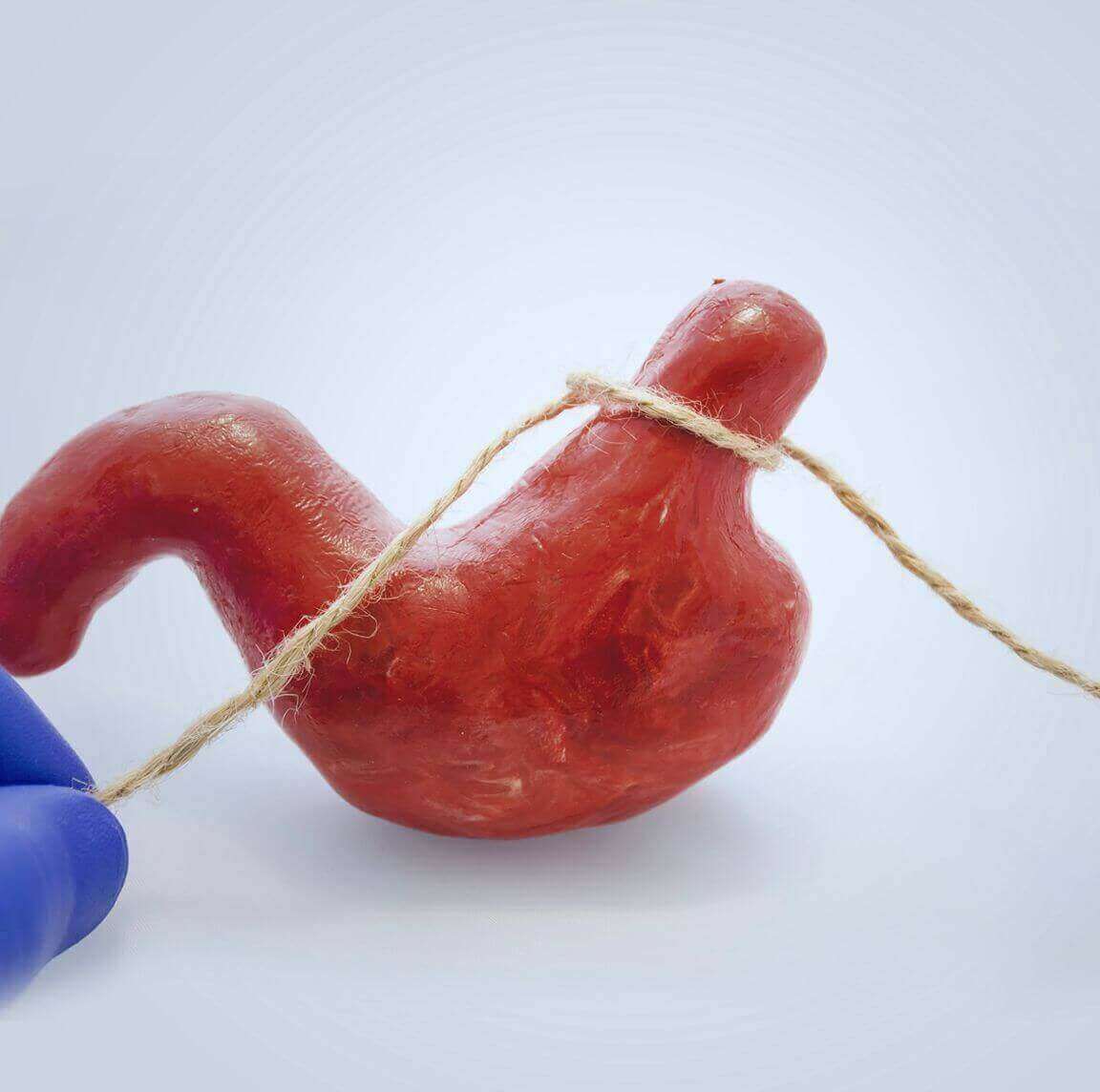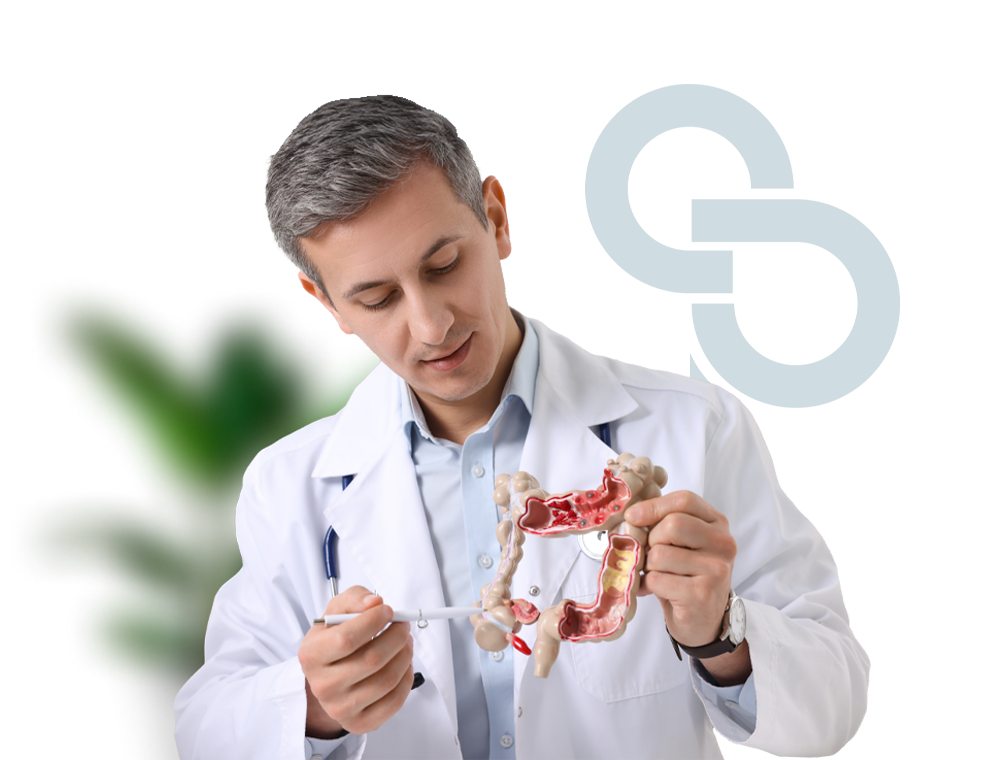

A hernia is the abnormal protrusion of organ or fatty tissue through a weakness of the muscle in the abdominal wall. The most common forms of hernia are inguinal (groin), umbilical (belly button), incisional (from a former hernia surgery), femoral (outer groin) and hiatal (upper stomach).
In rarer cases, certain types of hernias can result in severe complications. A strangulated hernia occurs when a hernia cuts off blood supply to the intestines and tissue in the abdomen. When the herniated organ or tissue gets trapped, blood supply will be cut off by the wall of muscle, resulting in great pain and potentially leading to tissue or organ failure.


What Causes Hernias?
There are two types of hernias - congenital and acquired. Each type of hernia has a different form of development.
Acquired hernias may be caused by movements and lifestyle habits such as:
- Constantly picking up heavy objects
- Overuse of the same muscle
- Being obese or having poor nutritional habits
- Excessive tobacco use


How is a Hernia Diagnosed?
The most common symptom of a hernia is a visible bulge in the affected area, typically at the abdomen or groin. Depending on the size and location of the hernia, symptoms may include pressure, a persistent cough, heartburn and difficulty swallowing. Symptoms of serious cases of hernias may include extreme pain, vomiting and constipation. If needed, ultrasound tests or CT scans can be scheduled for greater clarity and confirmation.
How are Hernias Treated?
Not all hernias require immediate treatment or hernia surgery; and treatment is dependent on the size and symptoms of the hernia.
However, when hernia surgery is needed, it can be performed by a hernia surgeon in two ways - tissue repair or mesh repair.



Mount Elizabeth Medical Centre, Singapore 228510











